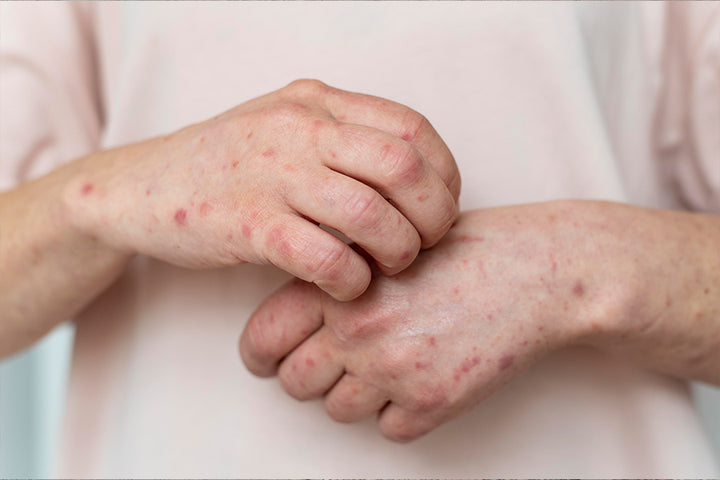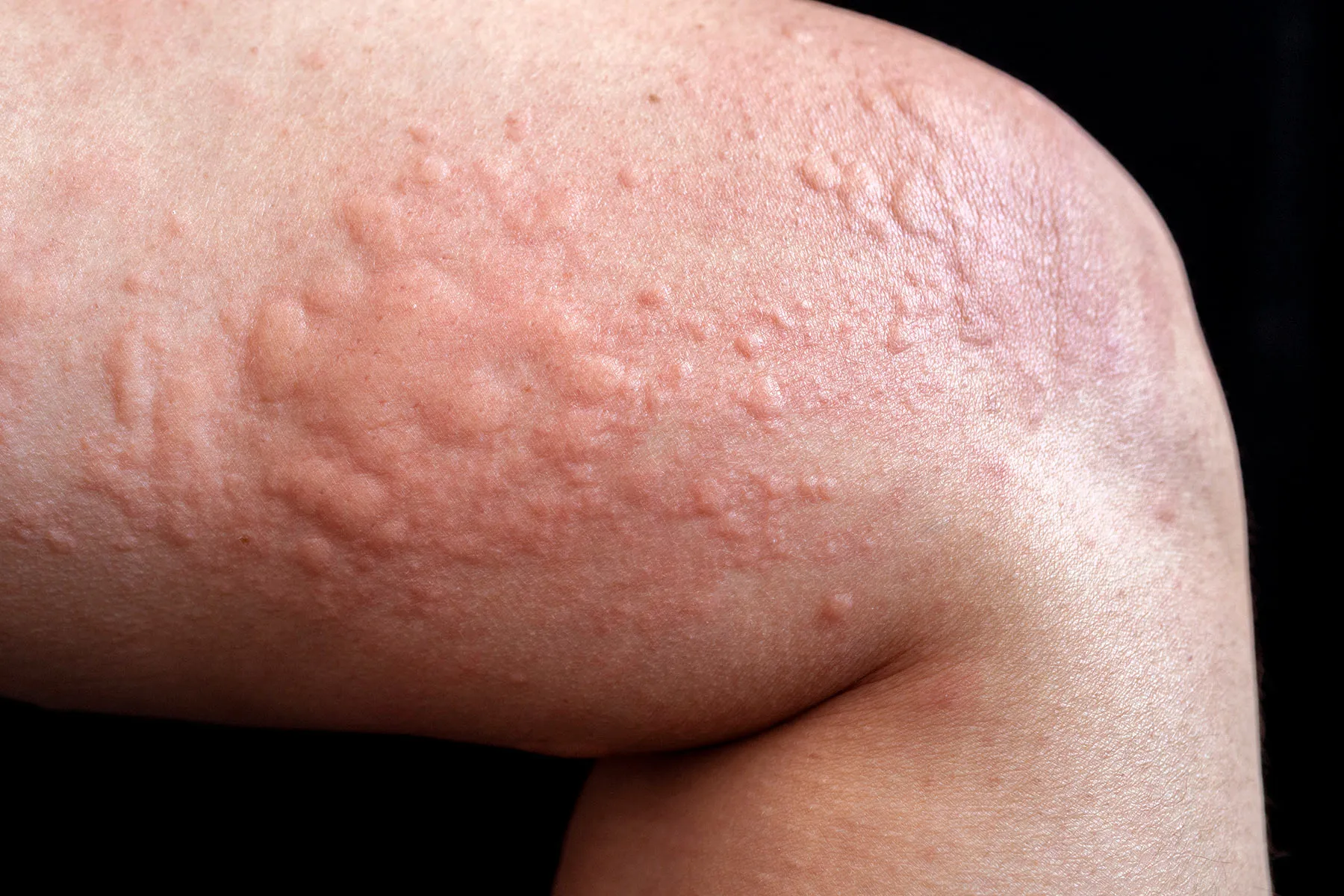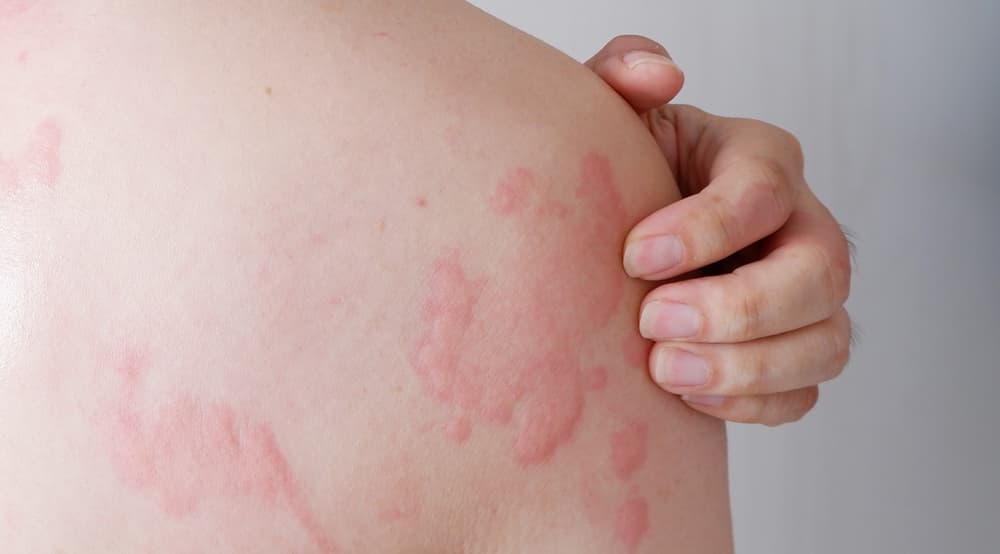



Itchy skin is a common complaint, often dismissed as a simple allergy, a reaction to dry weather, or even a fleeting annoyance. However, when the itching extends across the entire body, becoming relentless and unexplained by typical irritants, it can signal something far more significant. This was precisely the experience of one individual who initially attributed his widespread itching to a common allergic reaction, only to discover through medical diagnosis that the underlying cause was a complex condition requiring specialized attention.

The journey from initial discomfort to a definitive diagnosis can be a perplexing one for those experiencing generalized pruritus, or whole-body itching. Unlike localized itching, which might point to a mosquito bite or contact with an irritant, widespread itching without a visible rash can be a red flag that the body is attempting to communicate an internal imbalance or illness.

The Allergic Assumption: A Common Misstep
It’s natural to jump to the conclusion of an allergy when faced with sudden and persistent itching. After all, allergic reactions are a widespread cause of skin symptoms, ranging from hives and rashes to localized irritation. Our immune system, when encountering an allergen, releases histamines, which are chemicals that trigger the familiar itching sensation. This common knowledge often leads individuals to self-diagnose, perhaps trying over-the-counter antihistamines or avoiding perceived allergens.
However, the key differentiator often lies in the presence or absence of a typical allergic rash. While some allergic reactions can manifest as generalized itching, they are usually accompanied by hives, redness, or specific skin lesions. When the itching is intense, widespread, and the skin appears relatively normal, or the rash is subtle and non-specific, it’s a strong indicator that the root cause may lie elsewhere.

When Itching Becomes a Symptom, Not Just a Sensation
The human body is an intricate system, and pervasive itching can be a vital clue, pointing towards a diverse range of medical conditions that might not immediately come to mind. These conditions often involve internal systems and organs, with the skin acting as a sensitive barometer for what’s happening beneath the surface.
Some of the less obvious causes of generalized itching can include:
- Kidney Disease: When kidneys are not functioning optimally, toxins can build up in the blood. These accumulated toxins can irritate nerve endings in the skin, leading to intense and persistent itching. This is often described as “uremic pruritus” and can be incredibly debilitating for patients with chronic kidney failure.
- Liver Disease: Conditions affecting the liver, such as cirrhosis or hepatitis, can lead to a build-up of bile salts in the bloodstream. These bile salts, when deposited in the skin, can cause severe itching. The itching associated with liver disease is often worse at night.
- Thyroid Disorders: Both an overactive thyroid (hyperthyroidism) and an underactive thyroid (hypothyroidism) can lead to generalized itching. In hyperthyroidism, increased metabolism can lead to warmer, sweatier skin, contributing to itchiness. In hypothyroidism, dry skin and impaired nerve function can be culprits.
- Blood Disorders: Certain blood conditions, including iron deficiency anemia and some types of lymphoma (such as Hodgkin lymphoma), can present with widespread itching. The exact mechanism isn’t always clear but can involve immune system responses or direct effects on nerve fibers.
- Neurological Conditions: Conditions affecting the nervous system, such as multiple sclerosis or nerve impingement, can sometimes cause neuropathic itching. This type of itching arises from damage or irritation to the nerves themselves, sending abnormal signals to the brain that are interpreted as itchiness.
- Skin Conditions (Beyond Allergies): While not strictly internal, some chronic skin conditions like eczema (atopic dermatitis) or psoriasis can cause widespread and persistent itching, even when the visible rash is not immediately prominent or is very widespread. Dry skin (xerosis) itself, especially in older adults, can also lead to significant itching.
- Medication Side Effects: Many prescription and over-the-counter medications can have itching as a side effect. Opioids, some blood pressure medications, and certain antibiotics are common examples.
- Psychological Factors: Stress, anxiety, and depression can exacerbate or even directly cause generalized itching. The “itch-scratch cycle” can become particularly challenging for individuals under psychological distress.
The Diagnostic Journey: Why a Doctor’s Visit is Crucial
The individual in question, initially attributing his itching to an allergy, eventually sought professional medical advice when the symptoms persisted and worsened. This step was crucial. A healthcare professional doesn’t just look at the skin; they take a holistic approach, considering the patient’s entire medical history, lifestyle, and other accompanying symptoms.

A thorough diagnostic process typically involves:
- Detailed History Taking: The doctor will ask about the onset of the itching, its duration, severity, patterns (e.g., worse at night), and any other symptoms experienced.
- Physical Examination: A careful examination of the skin, looking for subtle rashes, dryness, scratch marks, or other dermatological signs.
- Blood Tests: Often, a series of blood tests will be ordered. These can check liver and kidney function, thyroid hormone levels, blood counts (to rule out anemia or certain blood disorders), and inflammatory markers.
- Further Investigations: Depending on the initial findings, more specialized tests might be necessary, such as imaging (e.g., ultrasound of the liver or kidneys) or skin biopsies, though these are less common for generalized pruritus without a clear rash.
In the case described, the diagnosis moved beyond a simple allergy, leading to a more complex understanding of the underlying health issue. This highlights the importance of not self-diagnosing persistent or generalized symptoms. While a simple allergy might be the cause, prolonged itching could be the body’s way of signaling a deeper, more serious condition that requires prompt medical attention and appropriate management. Early diagnosis can often lead to more effective treatment and improved quality of life.